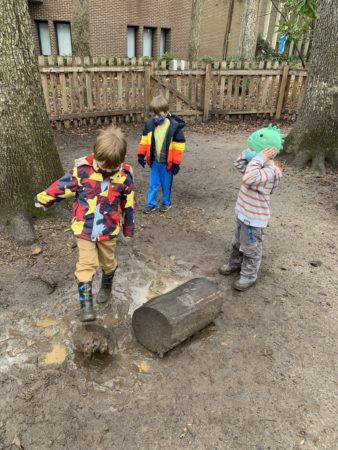“The progressive school teaches the child to think for himself instead of passively accepting stereotyped ideas. It keeps always in mind that each child is different from every other, and that what makes an educated person useful in his particular walk of life, what makes him interesting, what makes him an individual, is not his resemblance to other people, but his differences.”
– John French

At Open Door, we believe that playing is the most important activity in which children can learn, because it is through play that they learn to solve problems, reason, develop vocabulary, interact socially, and otherwise engage their bodies, minds, hearts and souls. We believe that
- Learning is a process, not a product
- Questioning is more important than answering
- Doing is more important than being told what to do
- Laughing is more important than fussing
- The teacher’s role is facilitator, supporter, enhancer, extender, and nurturer
- Empowerment is more important than interference
Our Curriculum goal is to be acutely aware of the children’s interests, and build on these interests in a stimulating manner. Thus, we follow an Emergent Curriculum (so named because it naturally emerges), also known as Project Approach (so named because the children and teachers work together to create projects relevant to the children’s interests). When the children become absorbed in what they are doing, learning is taking place.
Discipline at Open Door School involves the careful construction of an environment which fosters independence, respect, warmth, and comfort. Expectations are stated in a positive rather than negative form. Whenever possible, children are allowed to experience natural and logical consequences of their behavior. Open Door School staff do not punish children and do not force children to apologize. They will, however, encourage children to take notice of their peers’ verbal or facial expressions of feelings, to discuss the choices to help their peer feel better; and think of various acceptable ways of handling similar situations.